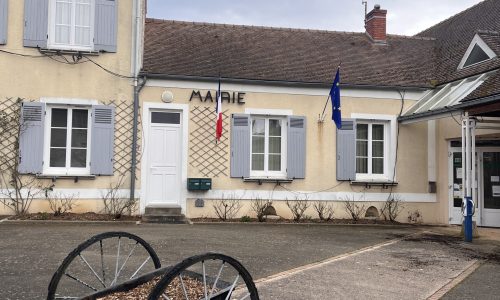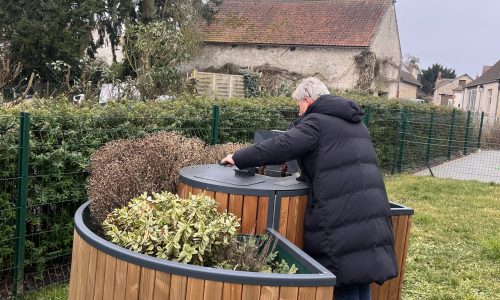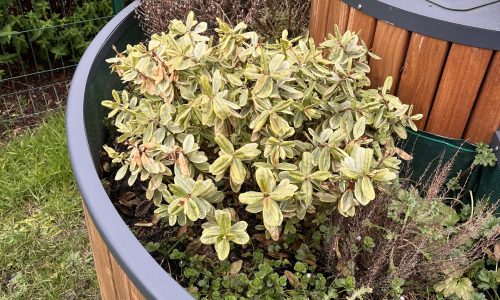Conversation with Nathalie Bricaud, mayor of the municipality of Ponthévrard.
With the AGEC law of 1 January 2024, local authorities are required to offer their residents solutions for sorting bio-waste at source.
The municipality of Ponthévrard offers various composting solutions: individual compost bins and shared composting sites. For almost three years now, the municipality has also had a compost garden in the school playground to compost food waste from the canteen.

The composter is installed in the schoolyard, near the canteen. Every day, at the end of the school day, after-school staff deposit food waste in the composting garden. All that is then required is to add the dry matter integrated into the composter and turn the central column.
On-site composting of food waste reduces CO2 emissions associated with the collection and treatment of bio-waste. The compost produced also enriches the green spaces in the municipality. It’s a truly virtuous circle.
“This composter is very fun and easy to use.”

Mixing, proper aeration of the compost and rodent-proof materials allow all food waste from the canteen to be composted. This includes both fresh produce (fruit peelings in particular) and leftovers from cooked meals, without any risk of odours or rodents.
With the planter, the composter even becomes a decorative feature in the school playground: the compost directly nourishes the soil and helps beautiful seasonal flowers to grow!
“Usually, we hide our compost bins at the back of the garden, but here we can put it on display. It’s a good image for the residents.”

By composting the school’s food waste on site, pupils learn how to sort and recycle. The composting garden also provides an opportunity to run workshops on food waste and recycling.
The composter is easy for children to use and the planter encourages them to get their hands dirty!
“Thanks to the compost garden, children teach adults about eco-friendly habits.”
1.2 tonnes/year of food waste composted on site.